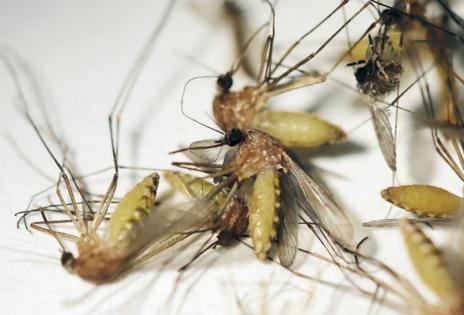Mosquitoes carrying West Nile virus detected in Atlanta: What can you do?
Published in News & Features
ATLANTA — Two mosquito traps in the Atlanta area recently tested positive for West Nile virus, public health officials said, prompting warnings about the potential health impacts as late summer approaches.
While cases are typically mild and not widespread, the state saw a spike in infections last year, which led to several deaths. The virus primarily impacts birds and other animals but can spread to people through mosquito bites.
West Nile virus isn’t new to Georgia, and very few cases of infection typically occur each year. According to data from the Georgia Department of Public Health, the state had 81 cases from 2018 to 2022, an average of 20 per year.
But in 2024, Georgia saw a significant increase in infections — 53 cases, up from 19 in 2023, according to Centers for Disease Control and Prevention data. Infections typically peak in late summer.
CDC Epidemic Intelligence Service Officer Hannah Padda said it’s not unusual to see cases increase from year to year. Animal population changes, weather patterns and human behavior all impact the amount of infections, she said.
“As with most mosquito-borne diseases, it is difficult to predict or identify any one reason for a higher-than-average year,” she said in a statement to The Atlanta Journal-Constitution.
The Fulton County Board of Public Health reported this week that traps in Hapeville and northwest Atlanta tested positive for West Nile virus, meaning mosquitoes carrying it are flying around in the city with the potential to infect humans through their bloodsucking bite.
“Mosquitoes can be dangerous if infected and may pose a serious health risk to people in our area,” Dr. Brandon Leftwich, the environmental health director at the board of health, said in a news release. “We want to make sure communities are aware and take necessary precautions to protect themselves.”
The health board has a mosquito control vendor to help eliminate the pests. Officials are also visiting communities to inform residents of the risks and how to prevent mosquito bites and breeding areas, according to the release.
So far this year, there has been only one infection in Georgia, near Columbus, CDC data shows.
Nationwide, there have been 24 cases in 2025. Of those, 10 have been “neuroinvasive,” meaning the virus entered the body’s nervous system. Those more serious infections can cause an acute fever or neurologic disease, “including meningitis, encephalitis and acute flaccid myelitis,” according to the CDC.
Most cases of infection are not serious and bring mild symptoms, such as a fever and headache, according to the state department.
“But in rare cases, it can cause more severe illness, especially affecting the brain,” Georgia’s public health website says.
©2025 The Atlanta Journal-Constitution. Visit at ajc.com. Distributed by Tribune Content Agency, LLC.







Comments